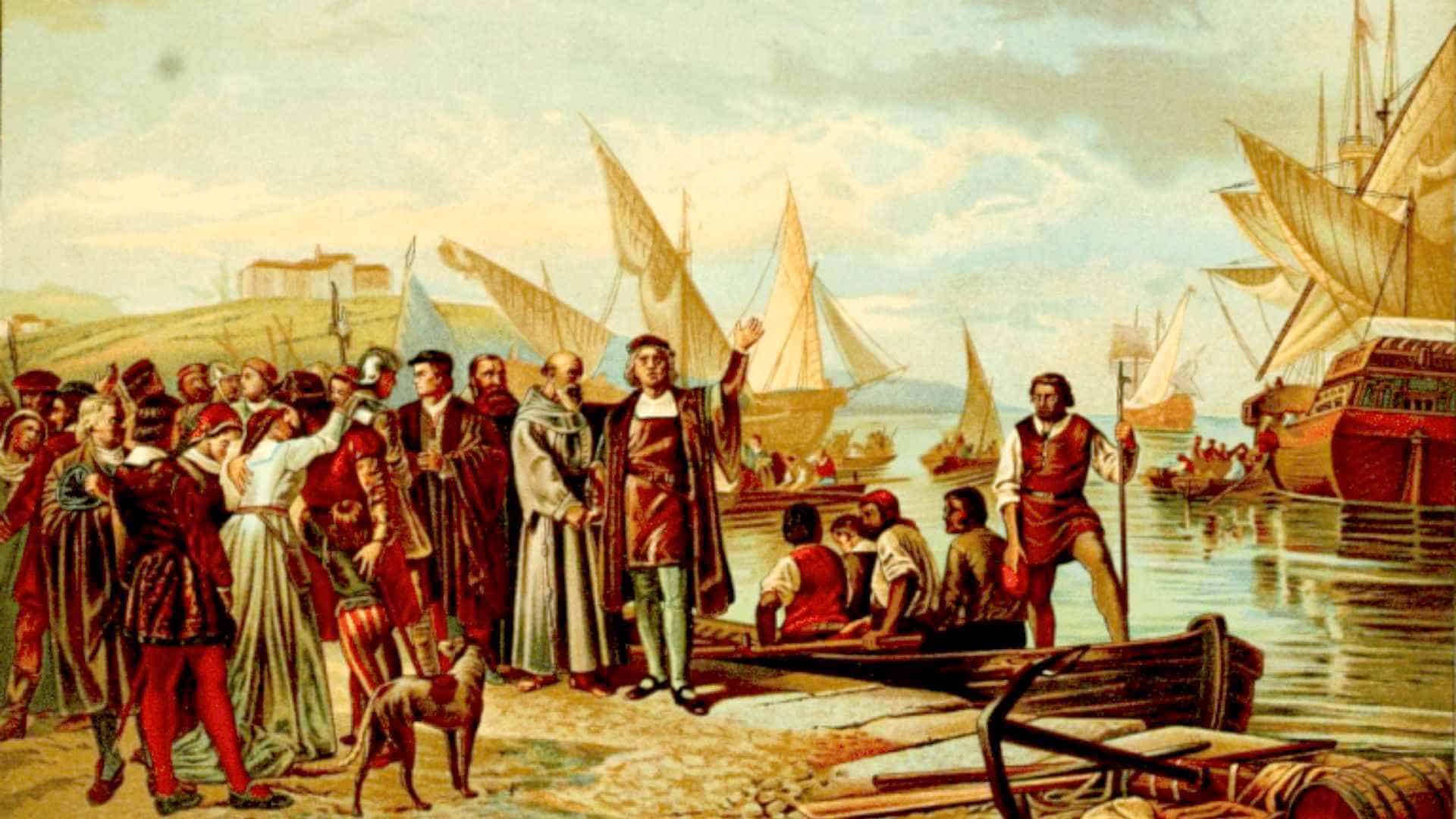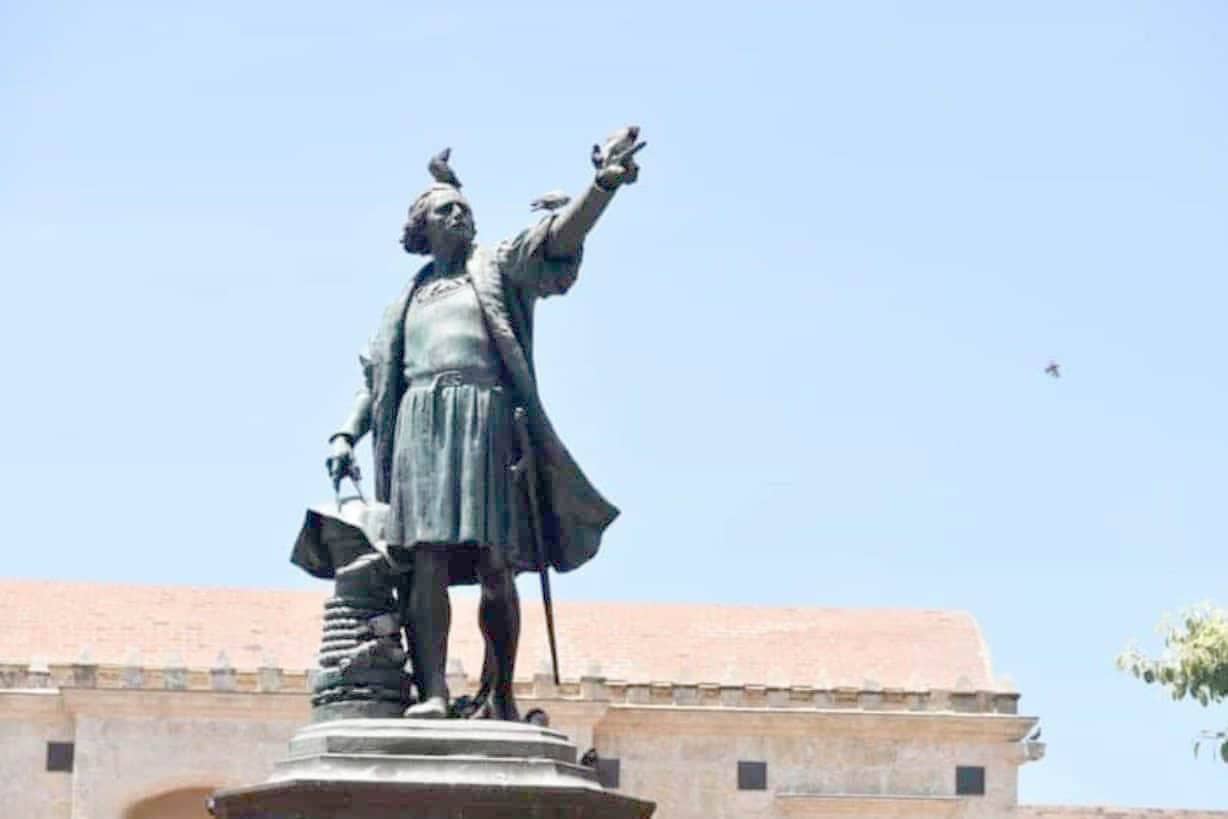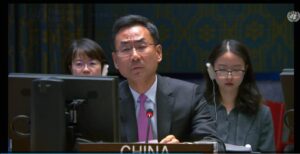
Beginning in the 16th century and continuing for the next 500 years, Western countries dedicated themselves to colonize America. Among them, the Kingdom of Spain is the one that stands out the most, reaching the Dominican Republic and establishing the first colony on the continent.
Throughout those 500 years, most of these territories have gone becoming independentbut both his history as their culture have been marked by the colonizers. In some things for the better, in some things for the worse.
In 2020, they requested to remove the statue of Christopher Columbus of the Colonial City through a petition headed by citizen Eduardo Martínez on the web Change.org, which obtained 1,157 signatures out of a goal of 1,500. The petition stated that “having a statue of Columbus is a symbol of oppression“.
In January 2021, this same statue was covered with a canvas by the Dominican artist Joiri Minayaas part of a art exhibitionunder the argument that the sculpture denigrates the chief Anacaona, who is at the feet of said statue.
In September 2024, the Senate approved in first reading to change the name of the Nicolás de Ovando avenuefrom the National District, who was a prominent figure in the colonization.
¿Dominican Republic is in a process of decolonization? How should it be done? Do they continue colonizers in it can? In order to commemorate this October 12 he Columbus Dayan anniversary that remembers the arrival of the navigator to America Christopher Columbus in 1492, Free Diary He consulted historians and sociologists to find out how the country is doing.
Remember or forget?
The sociologist Carlos Andújar, in charge of managing numerous museums, explains that the important difference between decolonization and decolonization (without “s”) are two different concepts that range from manipulation to honesty.
The decolonization consists of becoming more involved in the narrative of the history to the indigenous people, since historically they have been forgotten.
“For example, if you talk about the Cathedral of Santo Domingo and the first in America in 1538, you have to explain that those walls were made by the indigenous people, they were not the spanish those who placed each of those walls. The indigenous people are also part of that cultural value. But in the historical explanation they do not appear,” says Andújar.

The dominican breedthree cultures
The dominican breed It is a mixture of cultures: of the indigenous people who were already on the island, of the spanish who came to exploit it and the Africans, who were brought as slaves.
“In each of the heritage values that we have, the three cultures. The decolonization tries to recover from memory what has been forgotten,” he argues.
Mexicoa decolonization meaningless, “nonsense”
On the other hand there is the decolonization. This consists of “dismantling everything that has to do with the colonizers and explain the history otherwise without them. The decolonization is exclusive,” explains the sociologist.
For Andújar, the attitude of decolonization movement of Mexicowhich demolishes monuments and, among other things, demands that Spain apologize for what its ancestors did, is “nonsense.”
“The spanish Now they were not the ones who mistreated the indigenous people. But we must also understand that the cultures Americans are mixed race. The mestizo concept forces you to include everyone, including the spanish“.
The mesticity of the American people puts in check those ideological movements that seek to carry out a decolonization and delete from the history to the spanish. “If we erase Spain from the history American, we erase ourselves,” Andújar determines.
Thus, Andújar bets on “don’t leave anyone out“. “Explain the importance of Africanism, the importance of the aborigines and the importance of Spain,” he says. The only way to be fair to the history is “remember so as not to forget and not to forget so as not to repeat.” But in neither case do you turn your back on history or change it.
The coloniality of the can
When the spanish They arrived at the island, commanded by Christopher Columbusthey created a structure of cana hierarchy.
The sociologist Juan Luis Corporán, who is working on a thesis on this topic, points out that the coloniality of the can “refers to the persistence of structures and hierarchies of can that were established during the colonizationwhich continue to affect the social, political, economic and cultural organization.
Is saythe last blows that remain alive of the colonization as such. This coloniality of the can “life inequalities and racial and ethnic hierarchies”.

The race as an entry ticket to the club
So, if in Dominican Republic there is a structure of can descendant of the settlers and has a hierarchy racial, Free Diary asks Corporán: Are the elites of our country representative of the race?
“In the Dominican context,” he responds, “the elites are not representative of diversity.” racial of the population, but they identify and associate themselves with a Hispanic heritage, trying to distance themselves from African and Afro-descendant roots. In other words, Dominican elites have historically promoted a identity national identity linked to a clearer or more Europeanized aesthetic and phenotype, despite the demographic reality that shows a high percentage of Afro-descendants.
The coloniality of the can Is it negative? he is questioned. “Yes, it is negative, since it perpetuates inequalities and discrimination based on racial and ethnic constructions. “These colonial structures have contributed to maintaining a hierarchy that favors an elite minority.”
Decolonization It is not forgetting, but remember further
Andújar and Corporán agree that, to reach a decolonization complete, we must not forget, but remember. As Corporán says, “the decolonization involves revaluing knowledge and cultures localities that have been subalternized.
For him, the decolonization It is not only changing the “historical narratives”, as Andújar said, but also “creating a framework where communities can exercise their rights and participate on equal terms in society”, regardless of the race.



